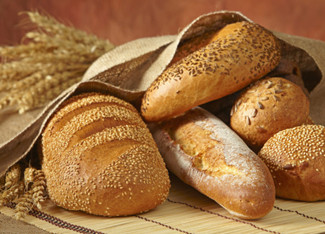In the scriptures, the struggles of the desert wilderness reveal who we are as we make our way on the journey of faith. We are often weak, wavering, grumbling and in need of a faithful God who takes the initiative towards us. The episode today from Exodus is a perfect example of the desert/wilderness journey. Its symbolism is rich. We see a faith community’s arduous journey over a long period of time through harsh terrain. We can feel a sense of hope because God sees the hunger of the Hebrew community and sends them food. But it is not the food to which they have been accustomed, nor is it the kind of food they might have chosen for themselves.

The Gospel reading this weekend is a continuation of the story of the feeding of the multitude - the sign that Jesus gave, nourishing the people not only with his words, but with something very substantial, something they could touch, taste and assimilate. He satisfied their bodily hunger, but they missed his more important gift - that of satisfying their spiritual hunger. Both readings encourage us to believe that God is feeding us during our journey of faith. Jesus gives bodily nourishment in the same way that God gave the Hebrews manna from heaven.
The crowds we see today seem to mistake the sign for the substance. The Hebrews grumble: "What is this?" The crowds following Jesus seek a sign so that they can believe. Even though they have just witnessed the impressive feeding of thousands, they complain that what they got was "just bread," that is, just earthly bread as opposed to the "heavenly" bread (manna) from Moses. Both groups get caught up in a too-literal understanding of "bread."
In today's world, the people don't need anything to remind them that they are hungry, but they are nevertheless involved in a similar "misreading" of a sign. Dissatisfaction of spirit is often made manifest in different ways. Some people have an uneasy restlessness that seeks satisfaction for spiritual hunger in the pursuit of one thing after another. This spiritual hunger often drives people to pursue life as they would the latest electronic toy, the latest philosophy, or the latest experience. Like a universal remote control they are haphazardly flipping through the options of life but never able to settle on anything that fully satisfies their inner hunger.
Even as we cannot live without food, so the spirit of man cannot survive and thrive without the spiritual nourishment which is Jesus himself. Over the next three weeks the Gospel readings will explore John 6 and Jesus' discourse on the Bread of Life. We will read of the promise that by partaking of him we will receive real life. Jesus is the source of that life and he comes to make a difference in lives.
To make room for the bread that Jesus offers, we must starve judging and feed on kindness, starve indifference and feed on compassion, starve isolation and feed on community, starve selfishness and feed on generosity. One difference we can expect to see is that our hunger of spirit will be satisfied. The old self must go hungry and the life of Jesus must feed and expand our spirits.
It can sometimes feel like we are journeying through the desert with no end in sight. And we can feel real hunger. But this is a different kind of hunger, the kind that affects all of us. This hunger is spiritual, the kind that no physical food can satisfy. Only He can begin to satisfy it, whatever its origins, whatever its symptoms or signs. The signs are there and can easliy be misread.
But it’s in the desert that we can learn the most about God, ourselves, and how this "Living Bread" can bring us together as one.




